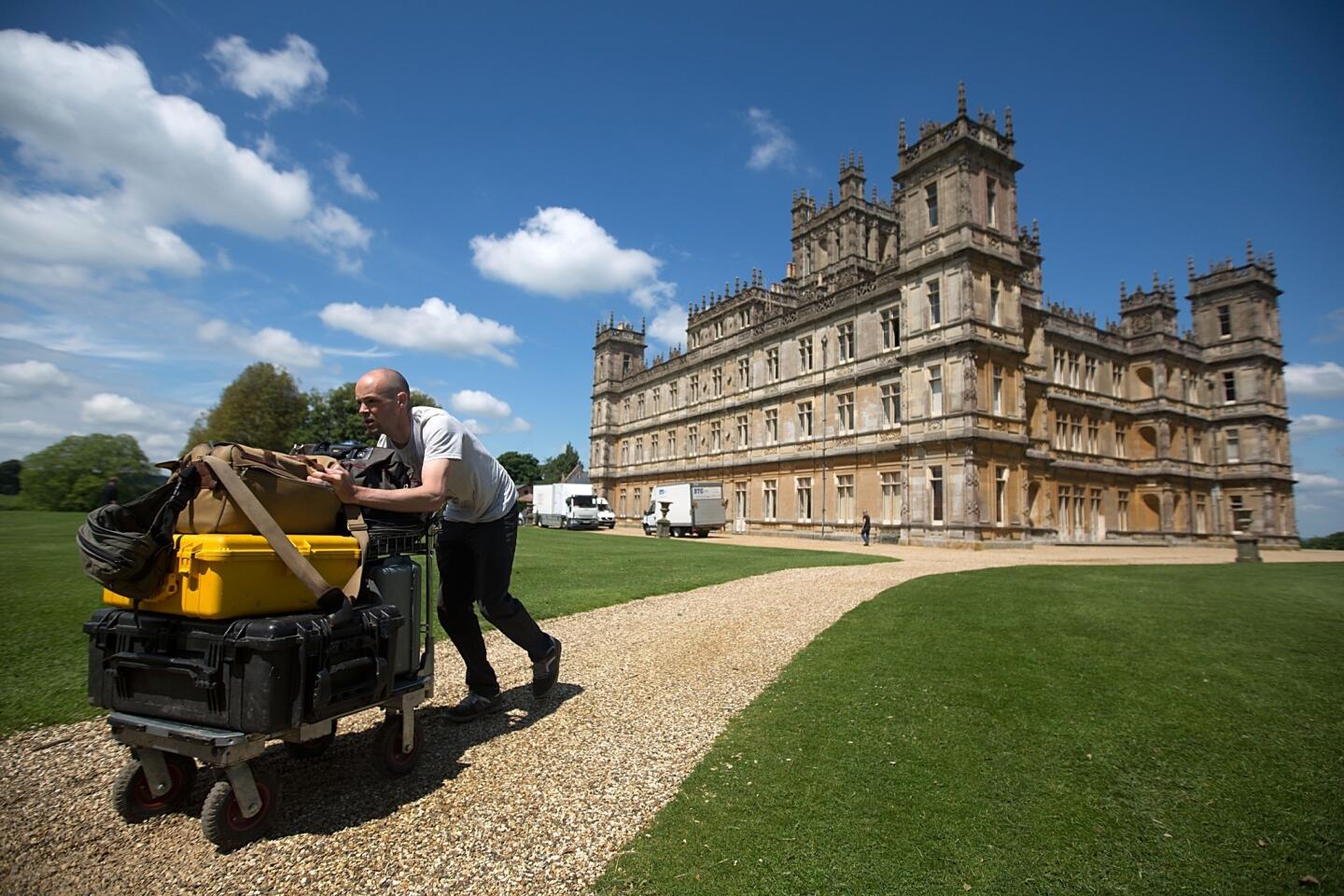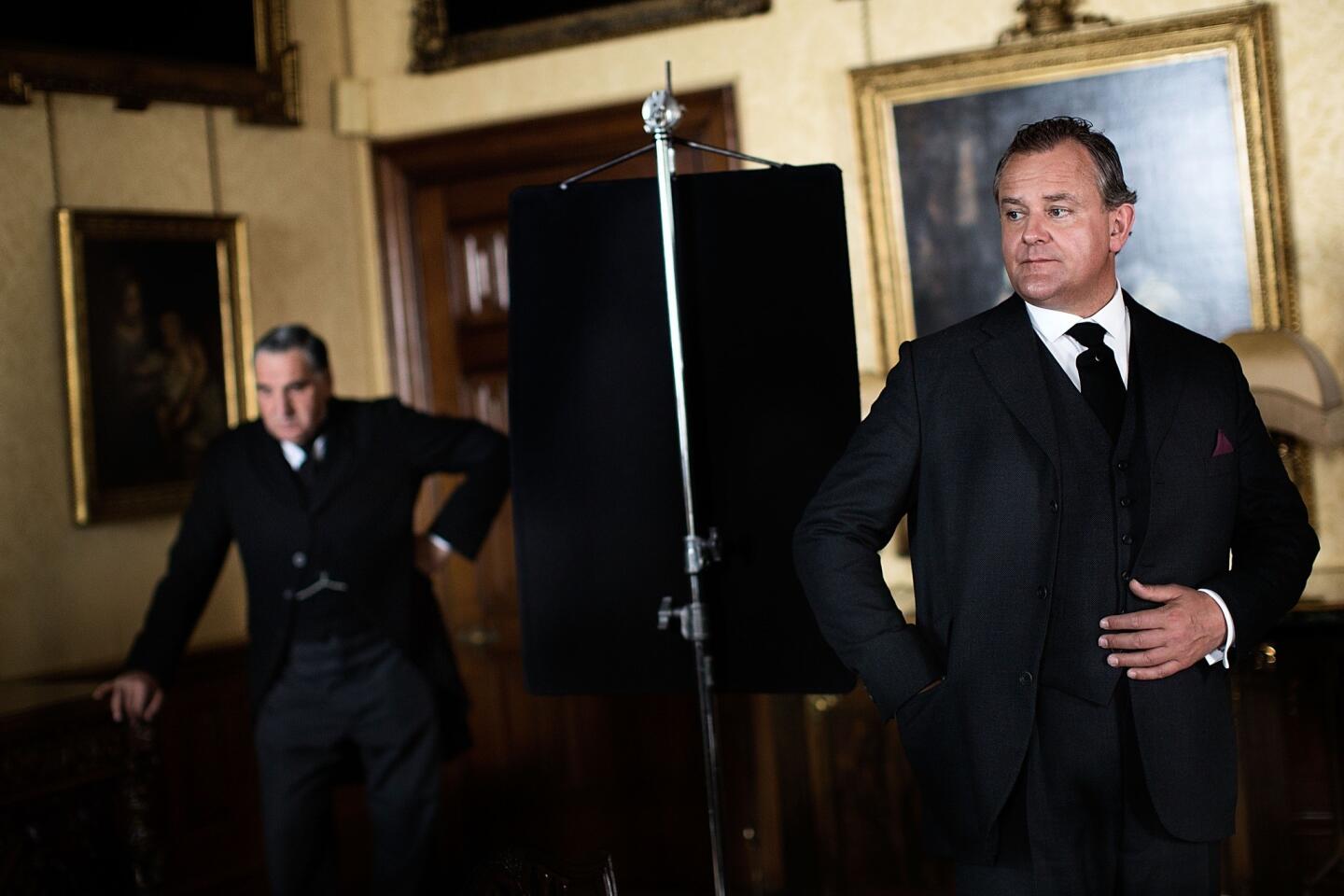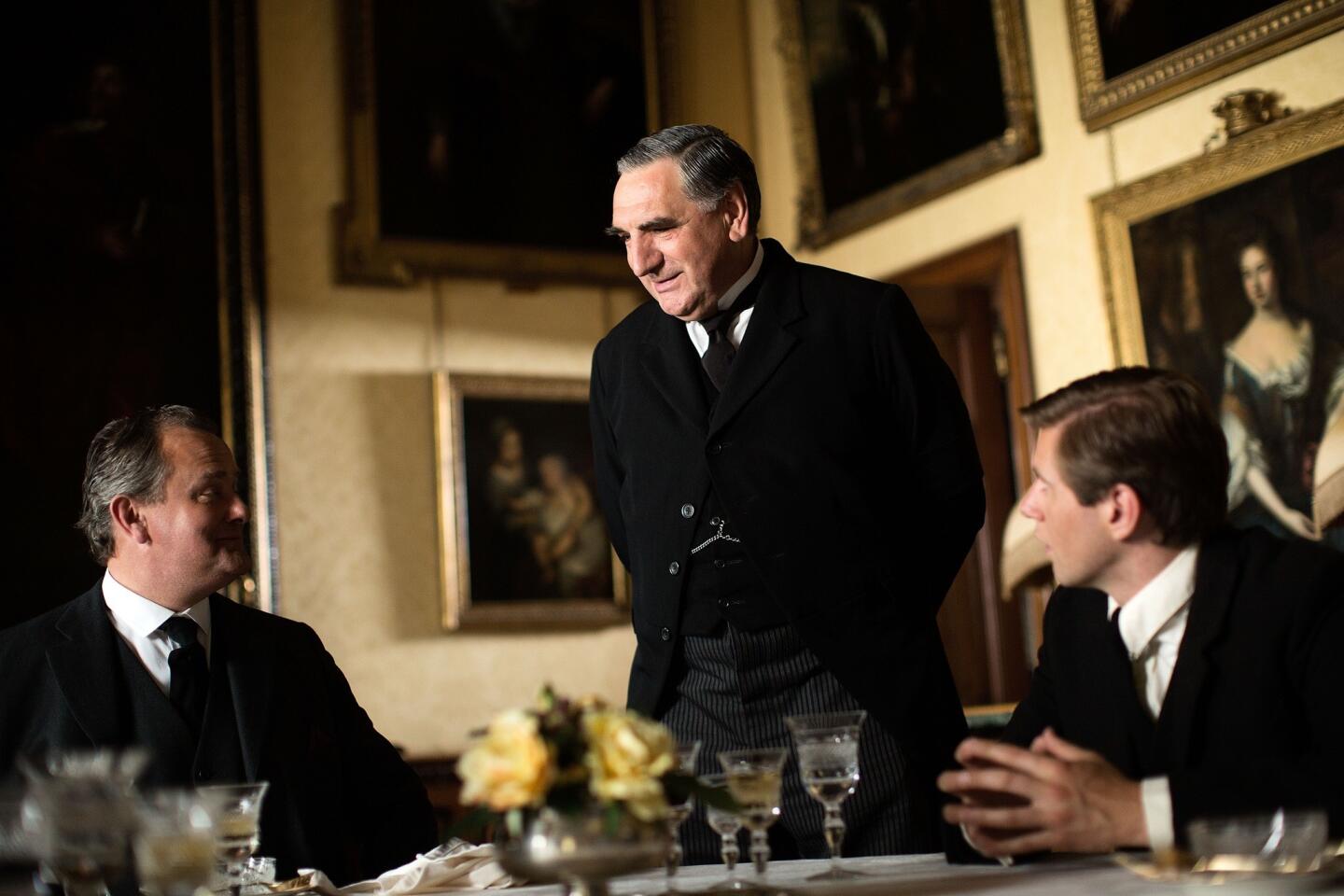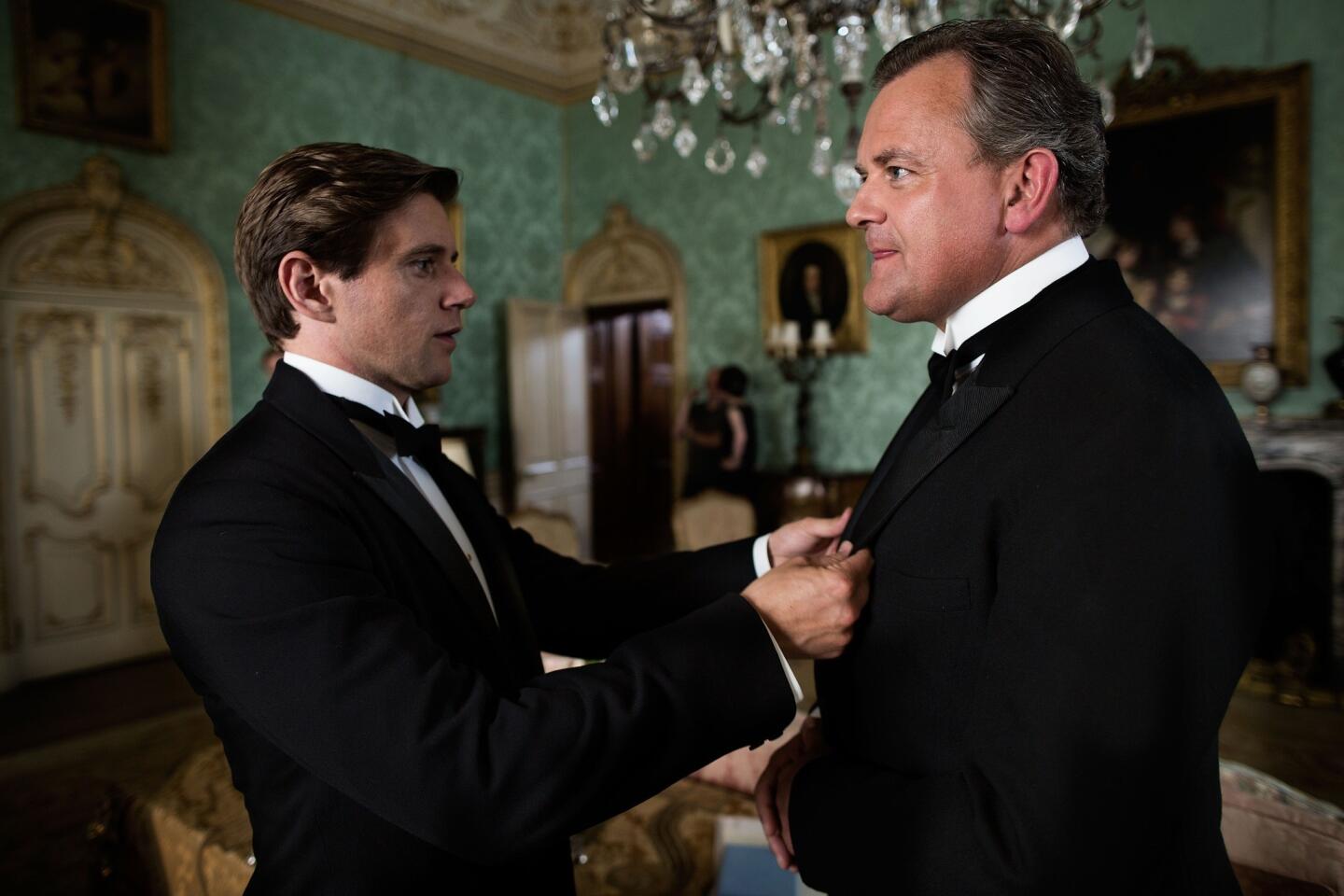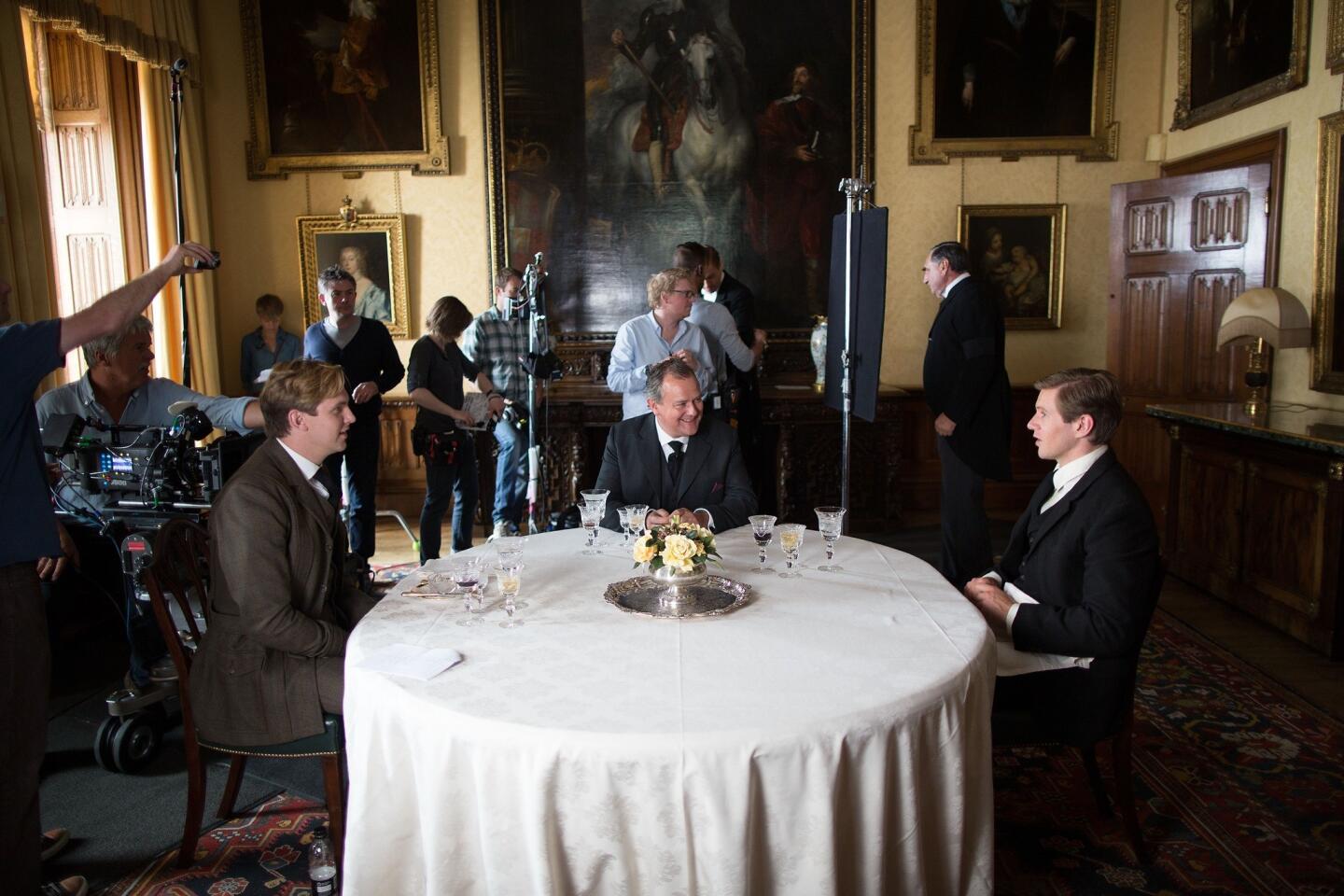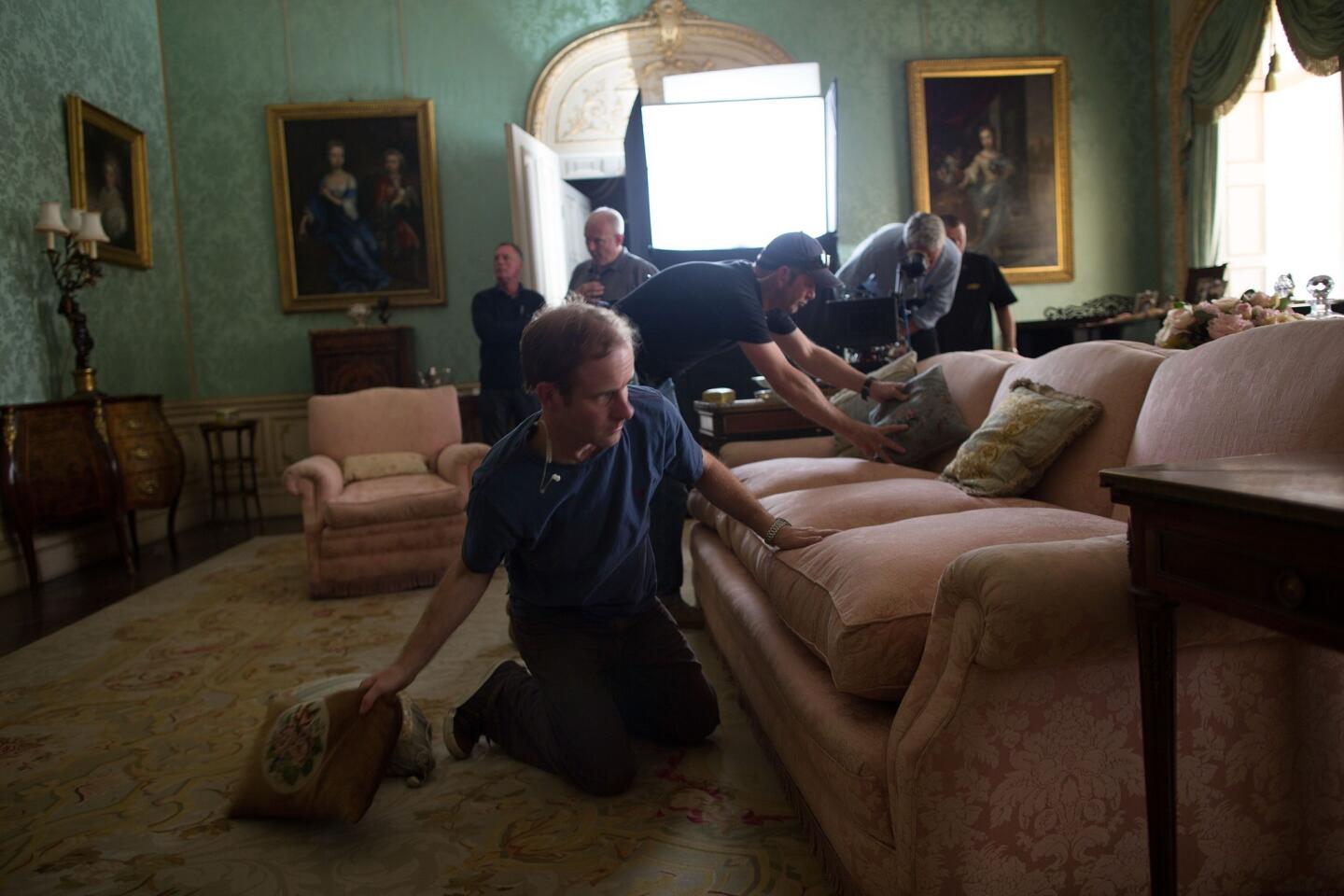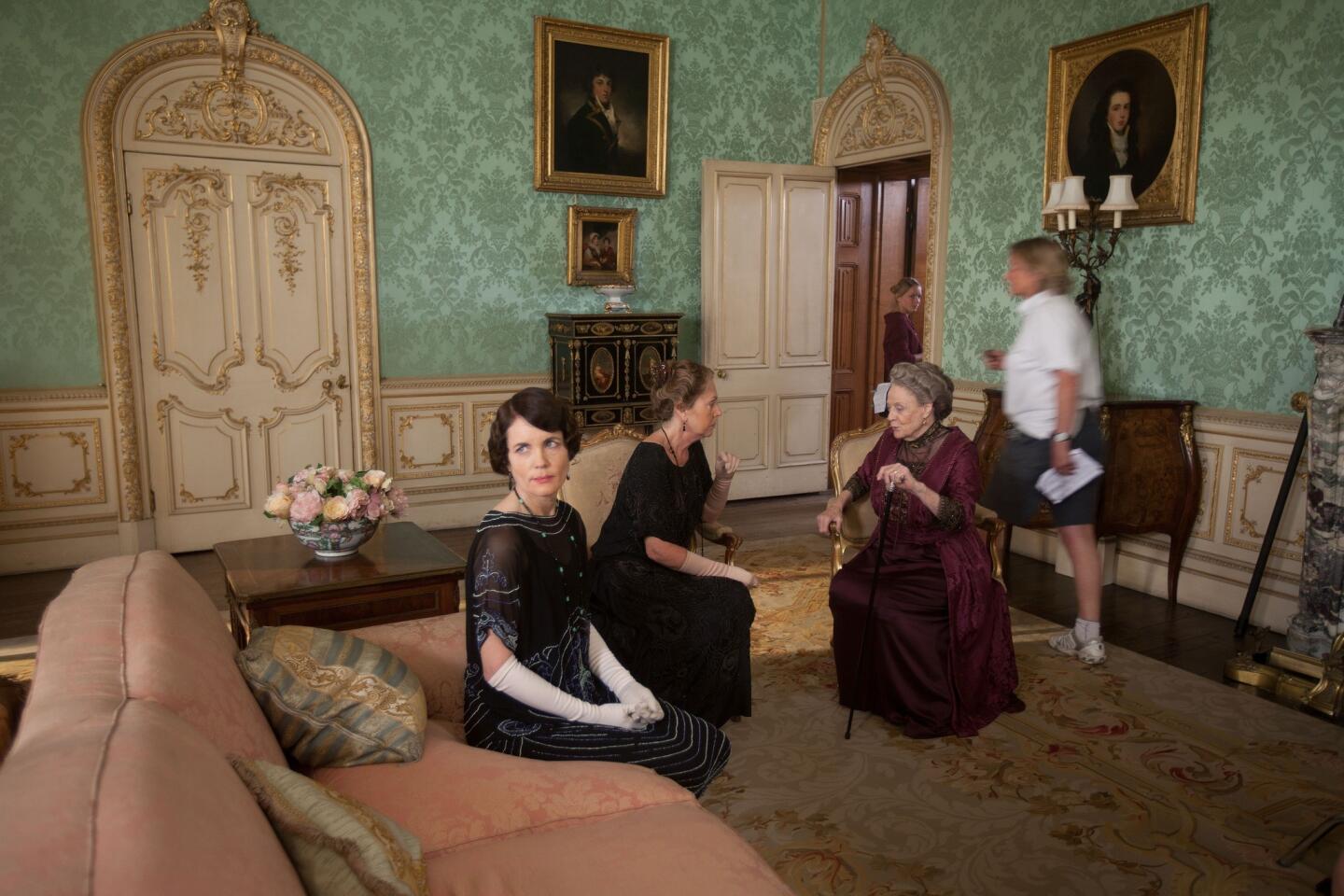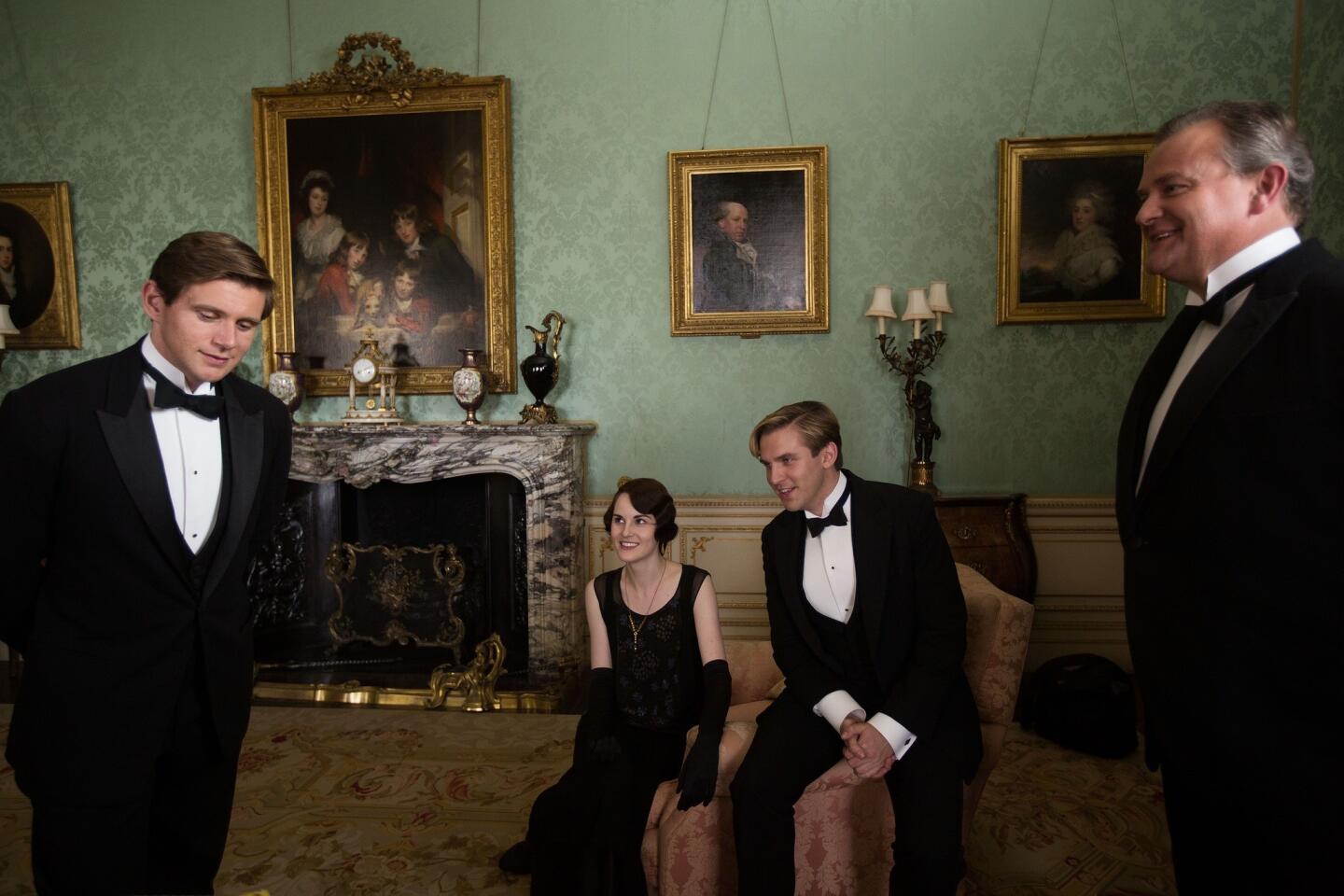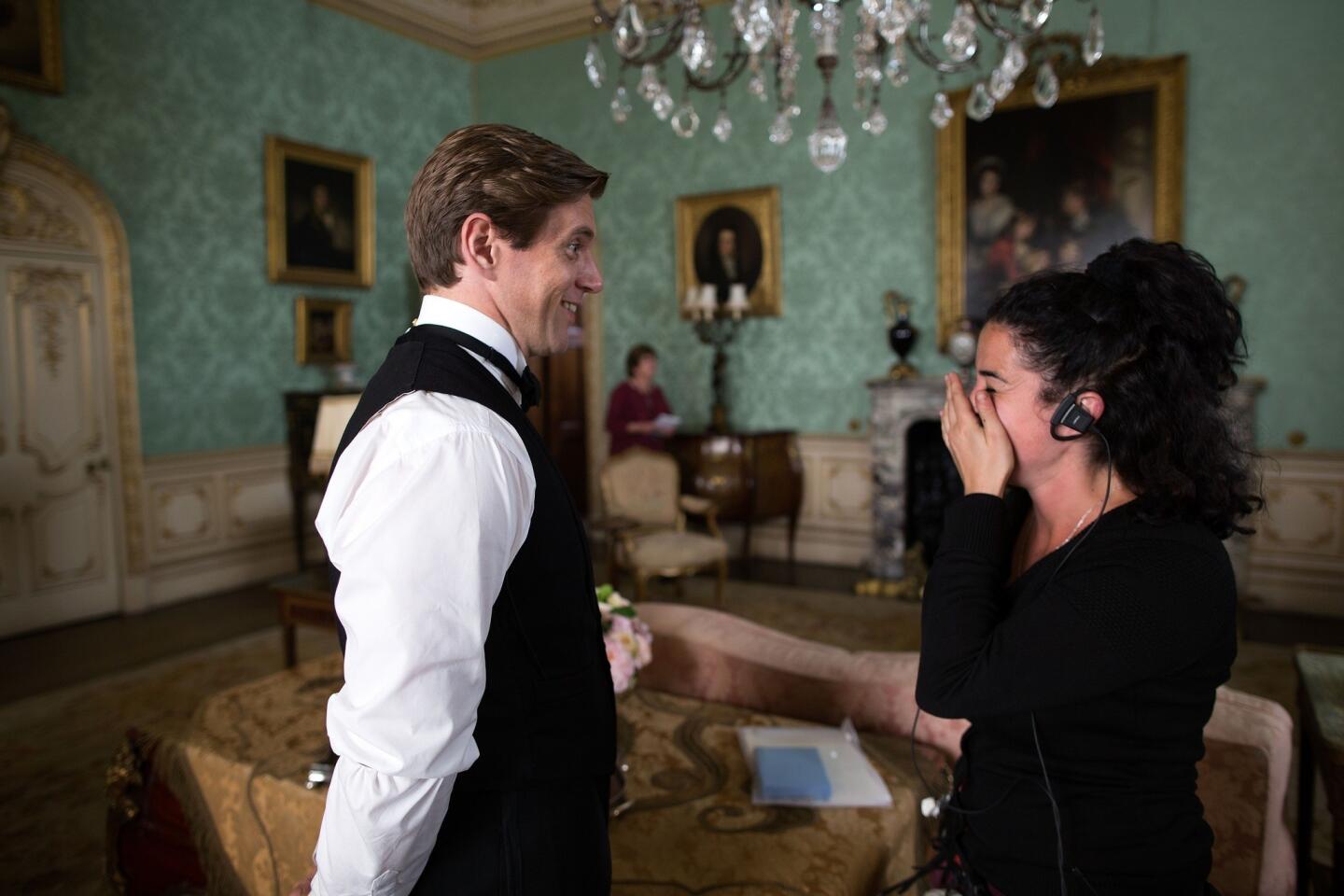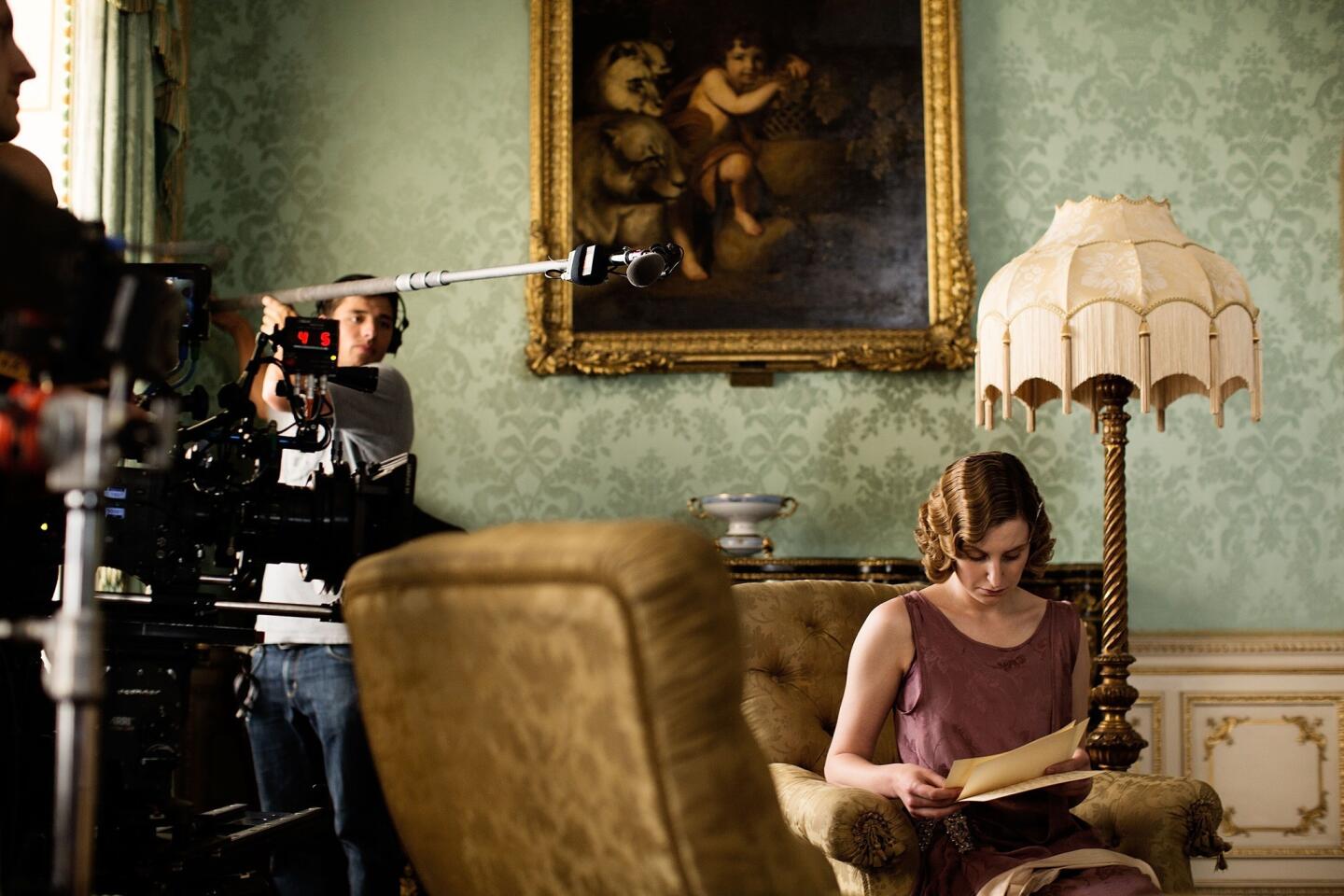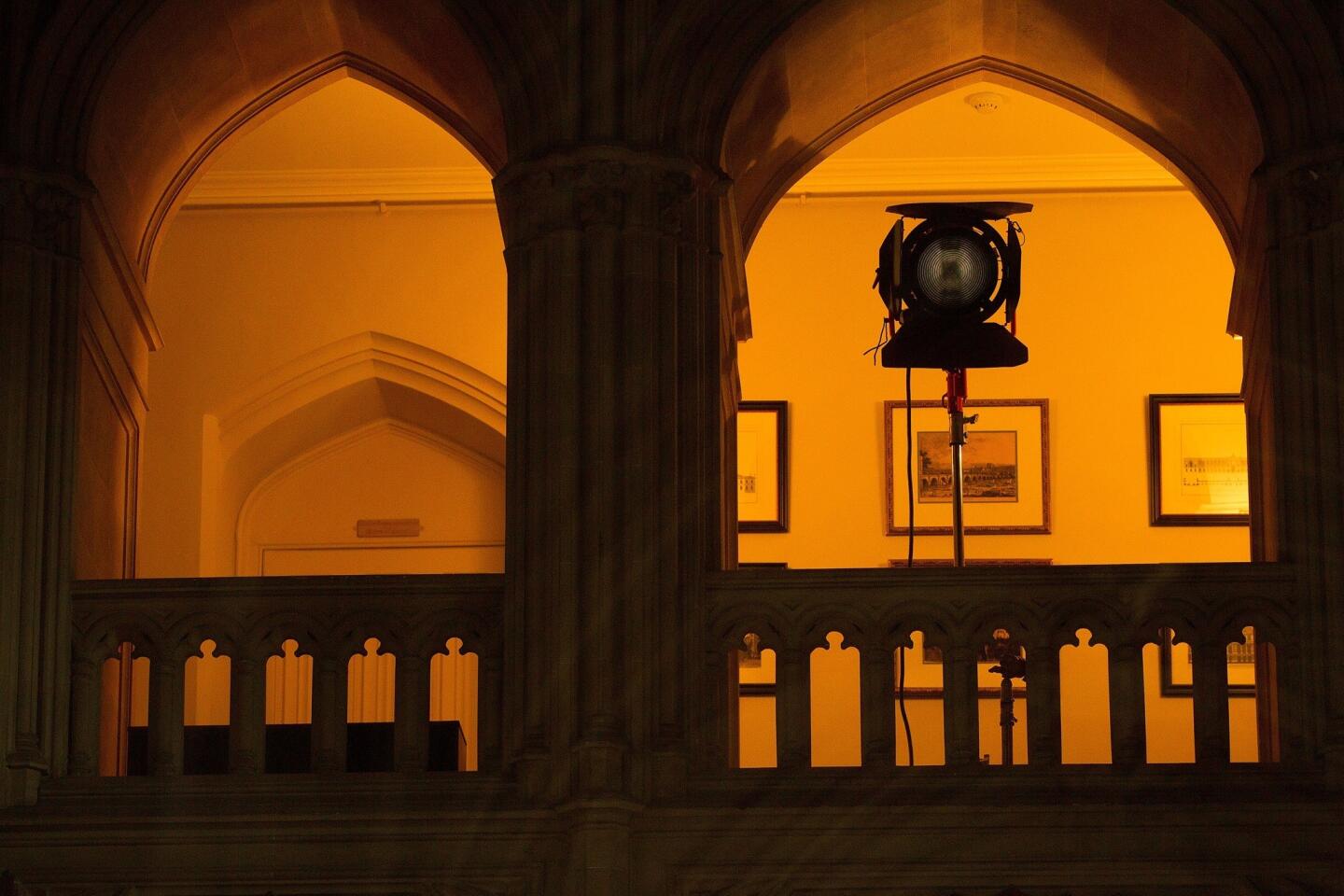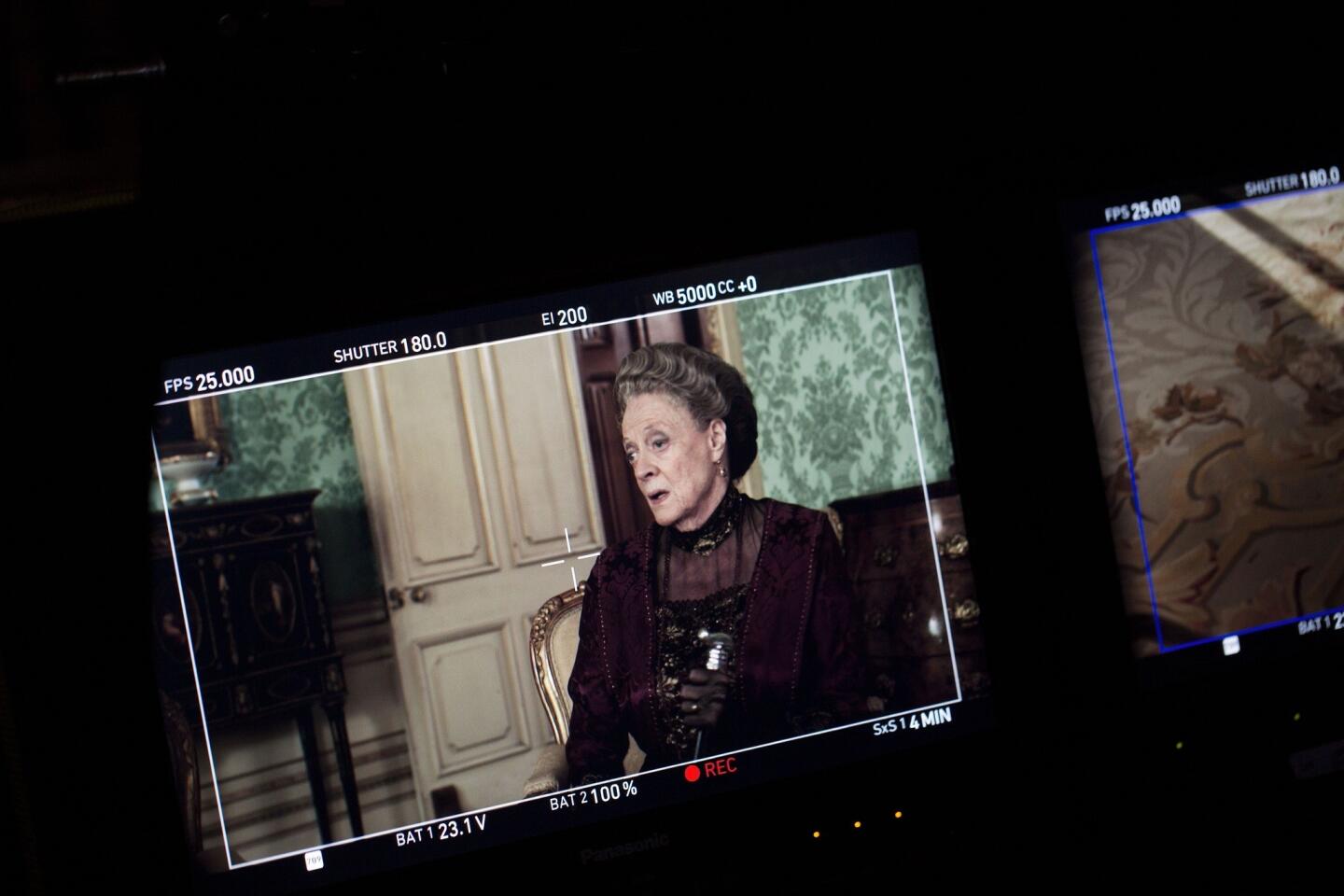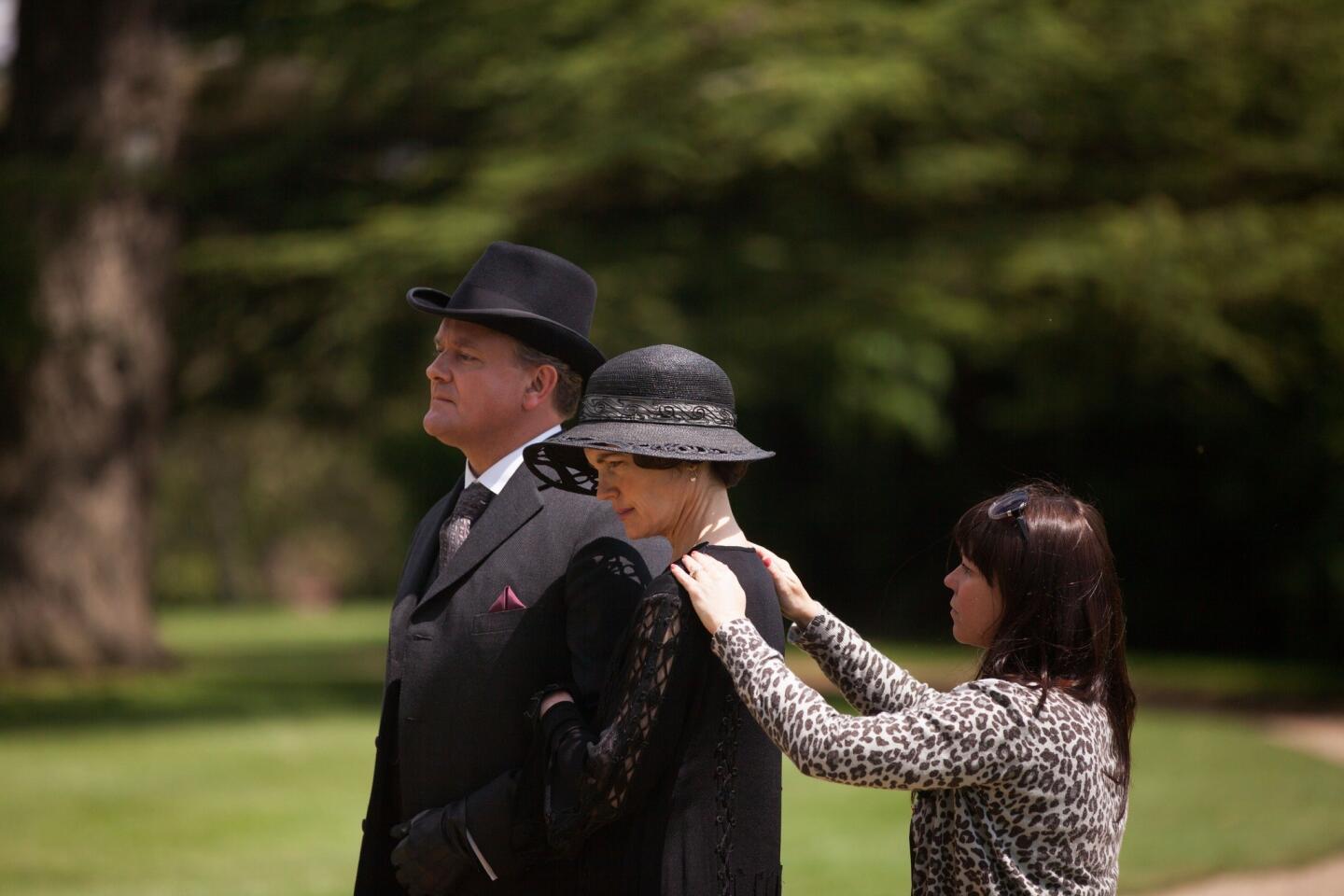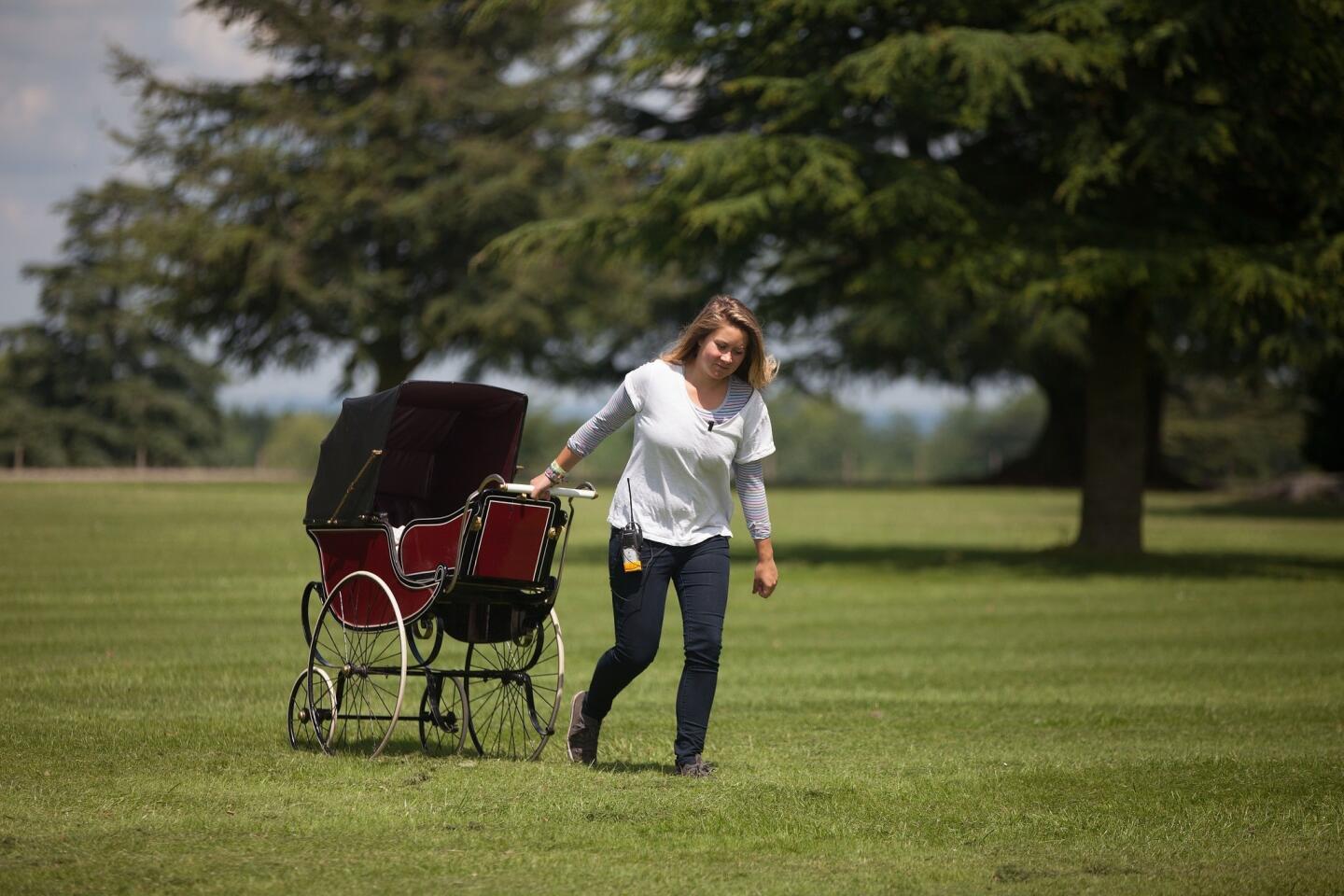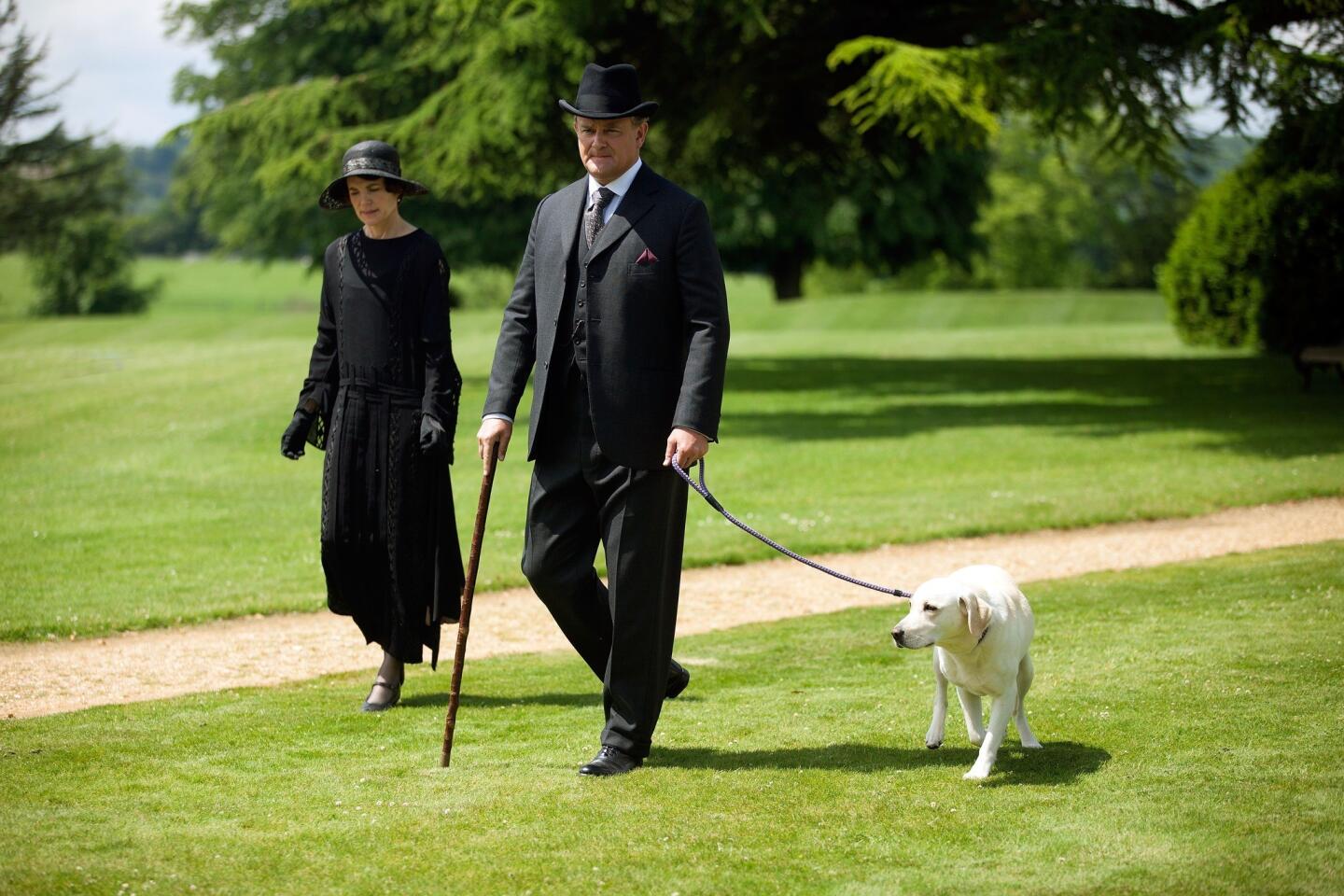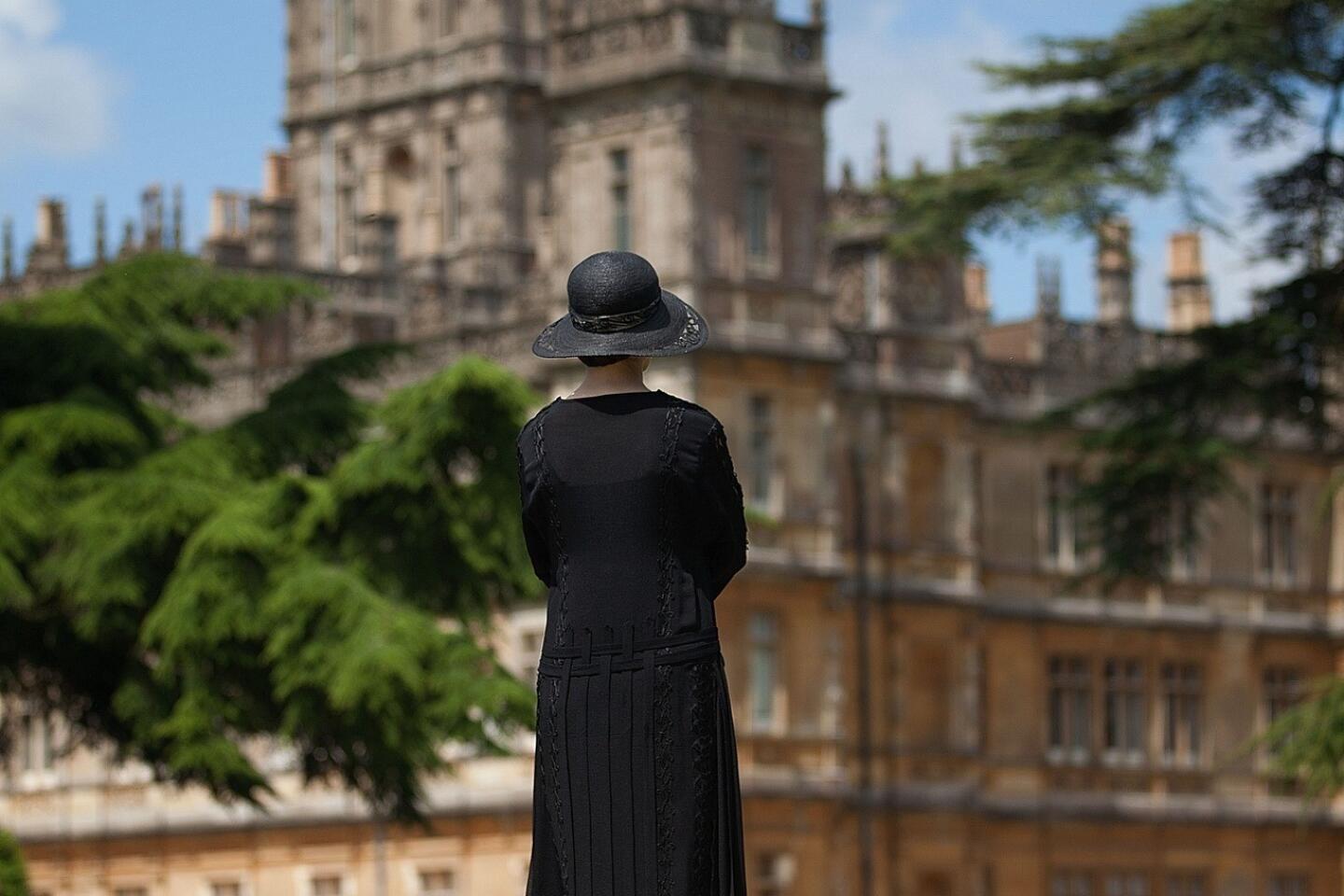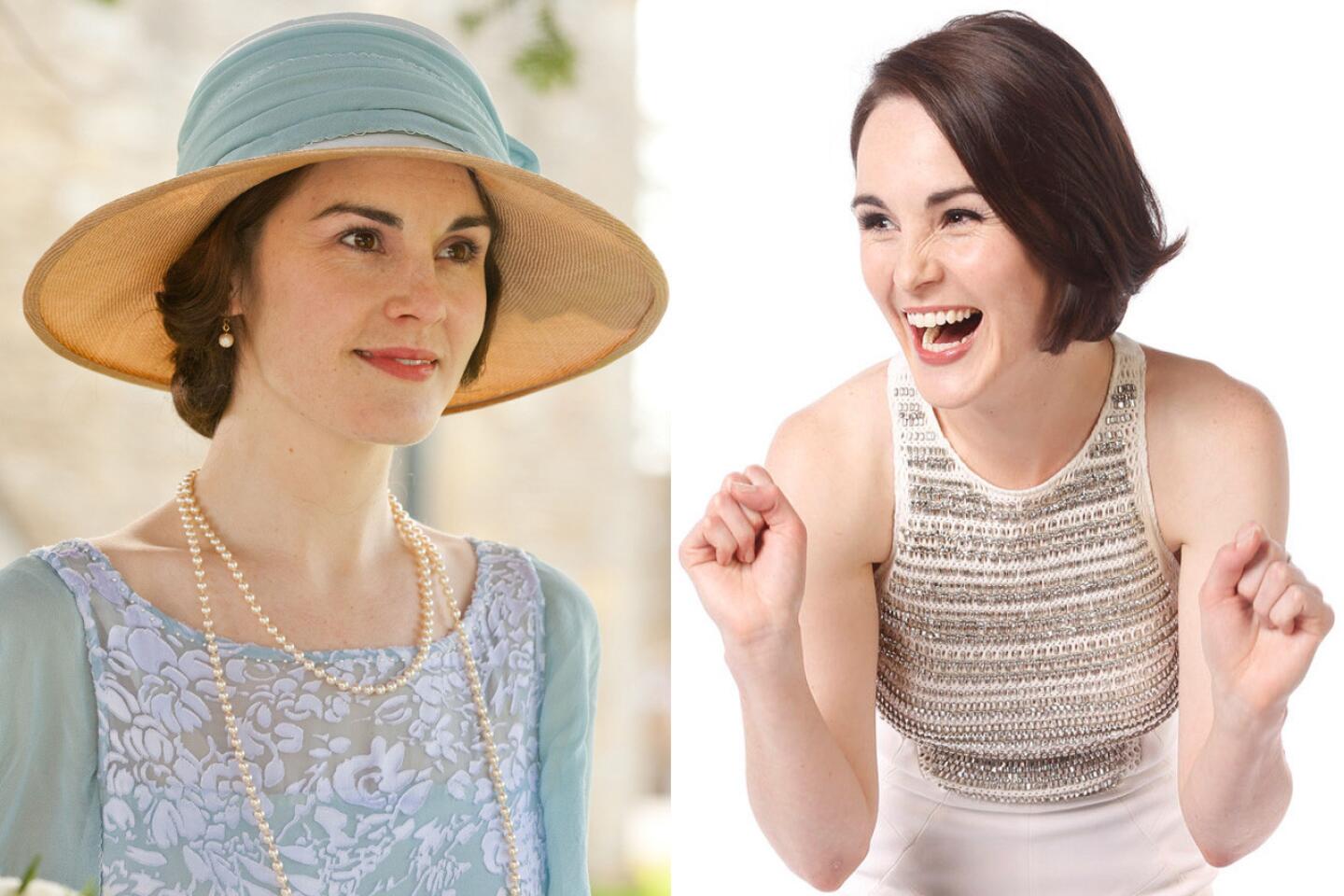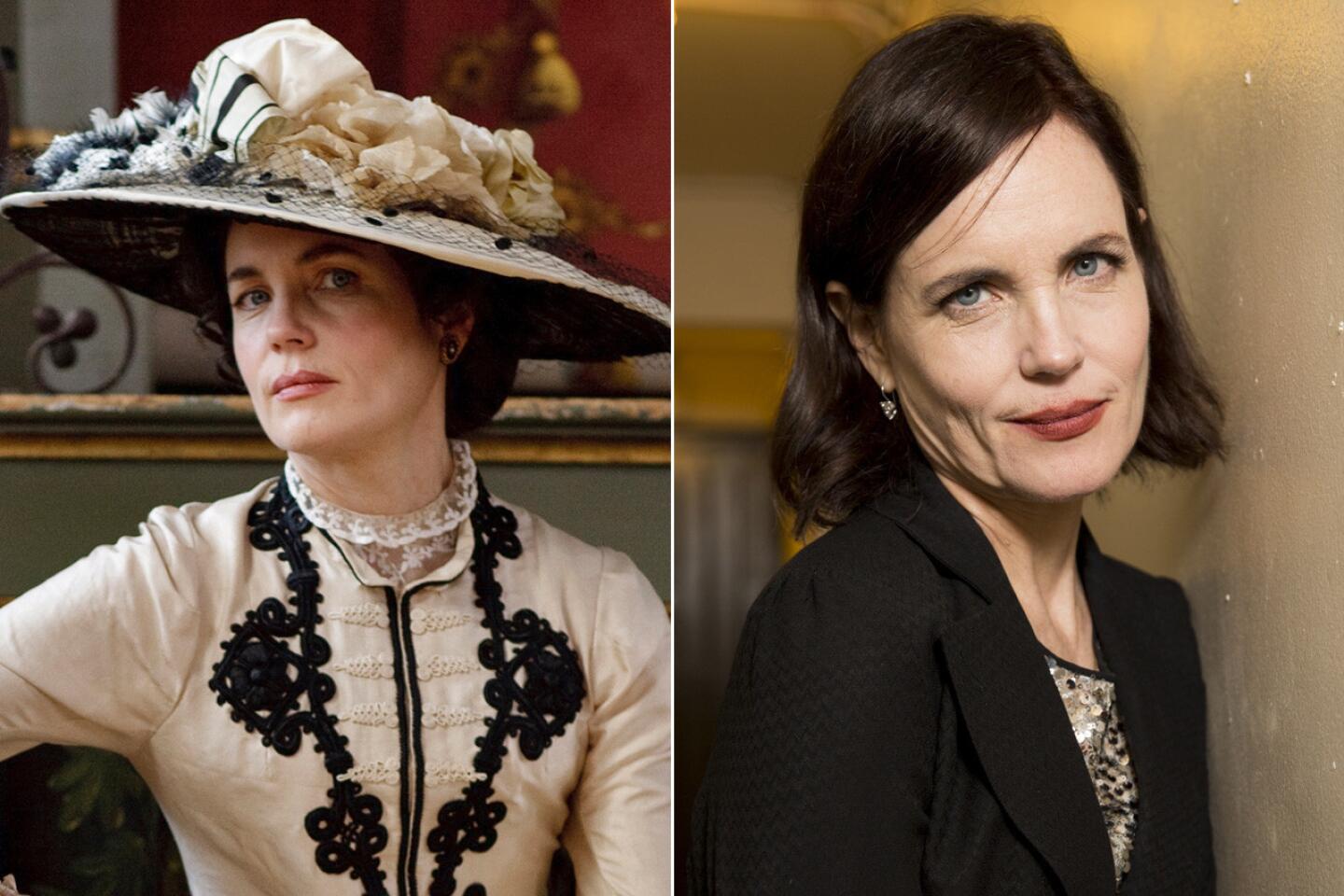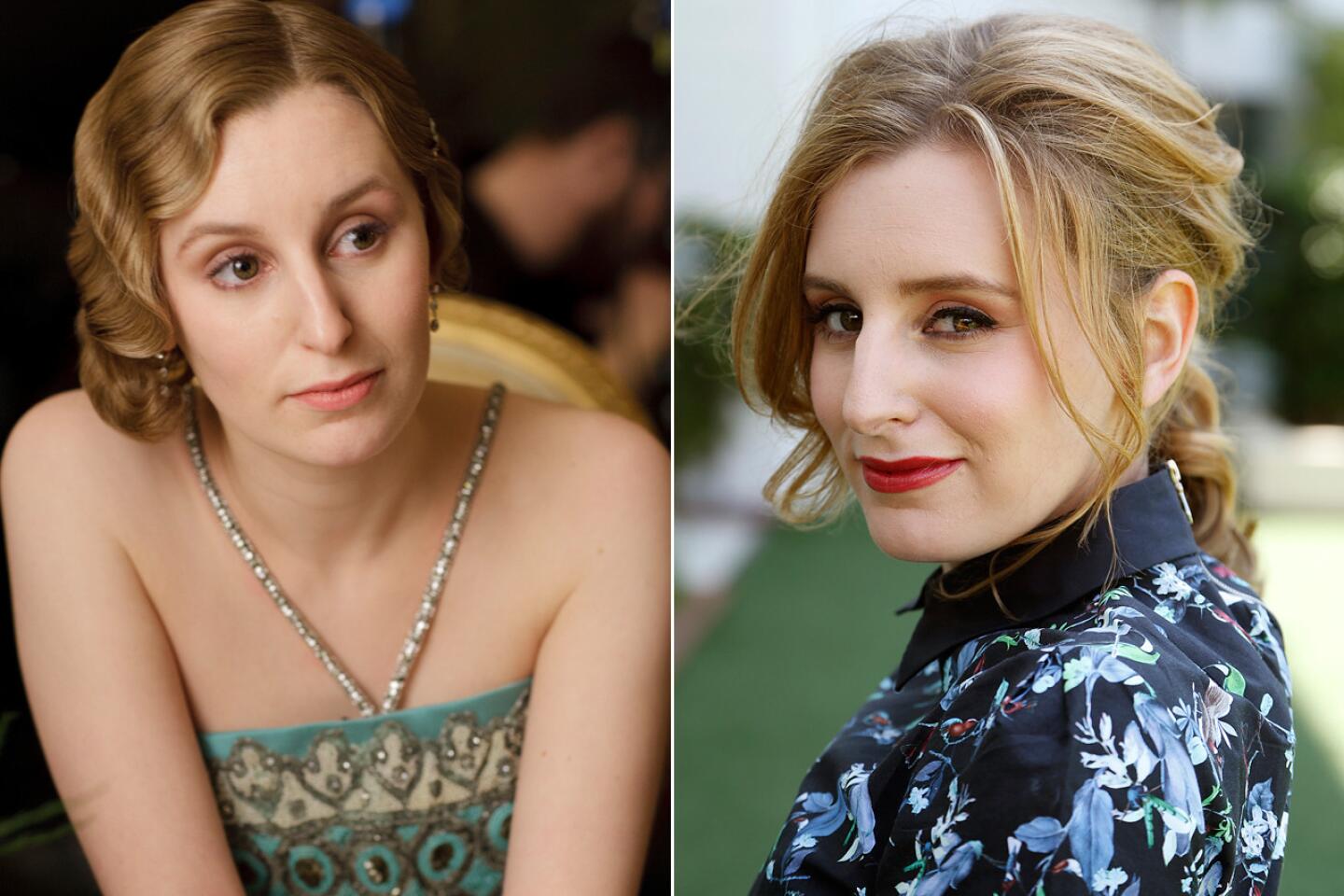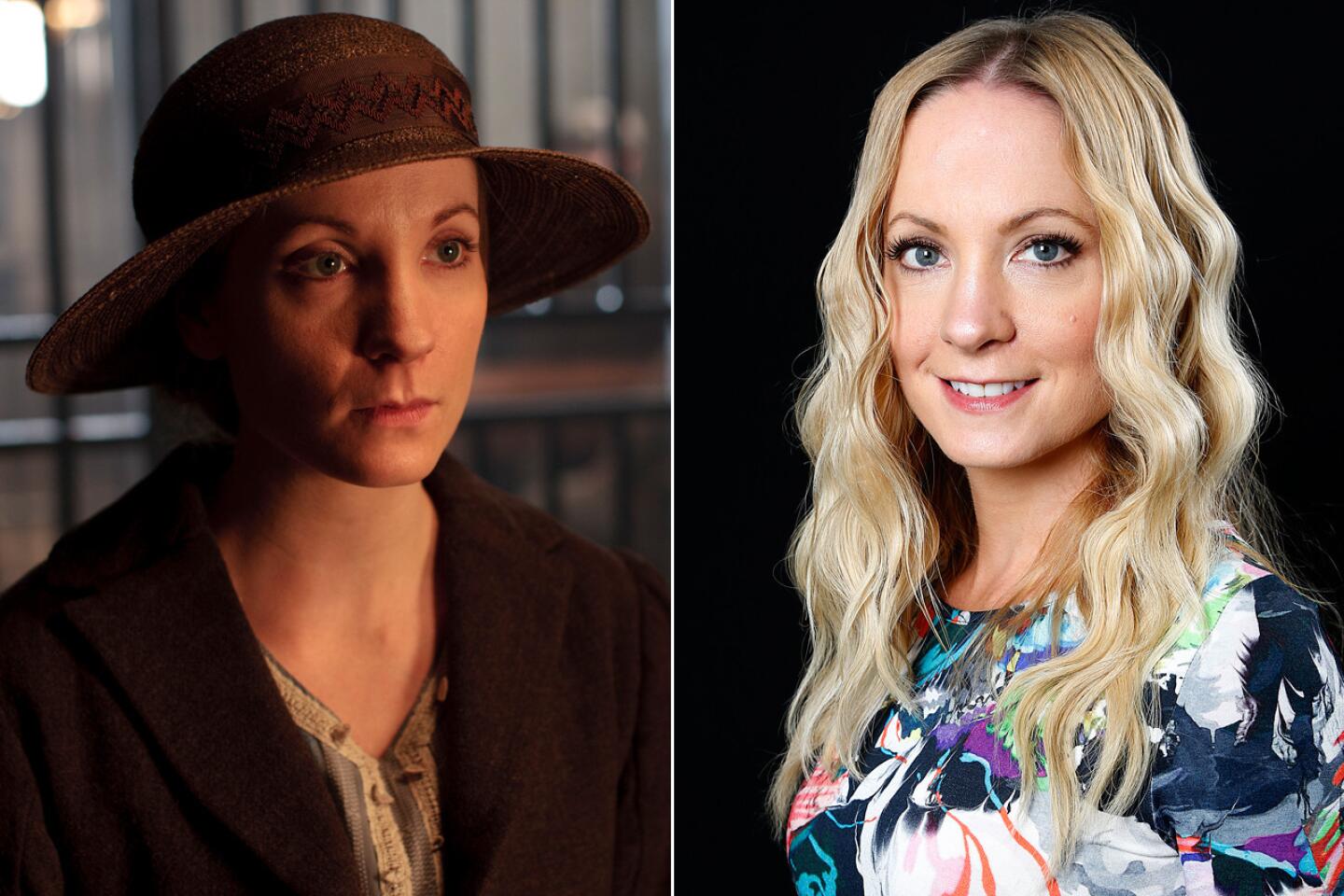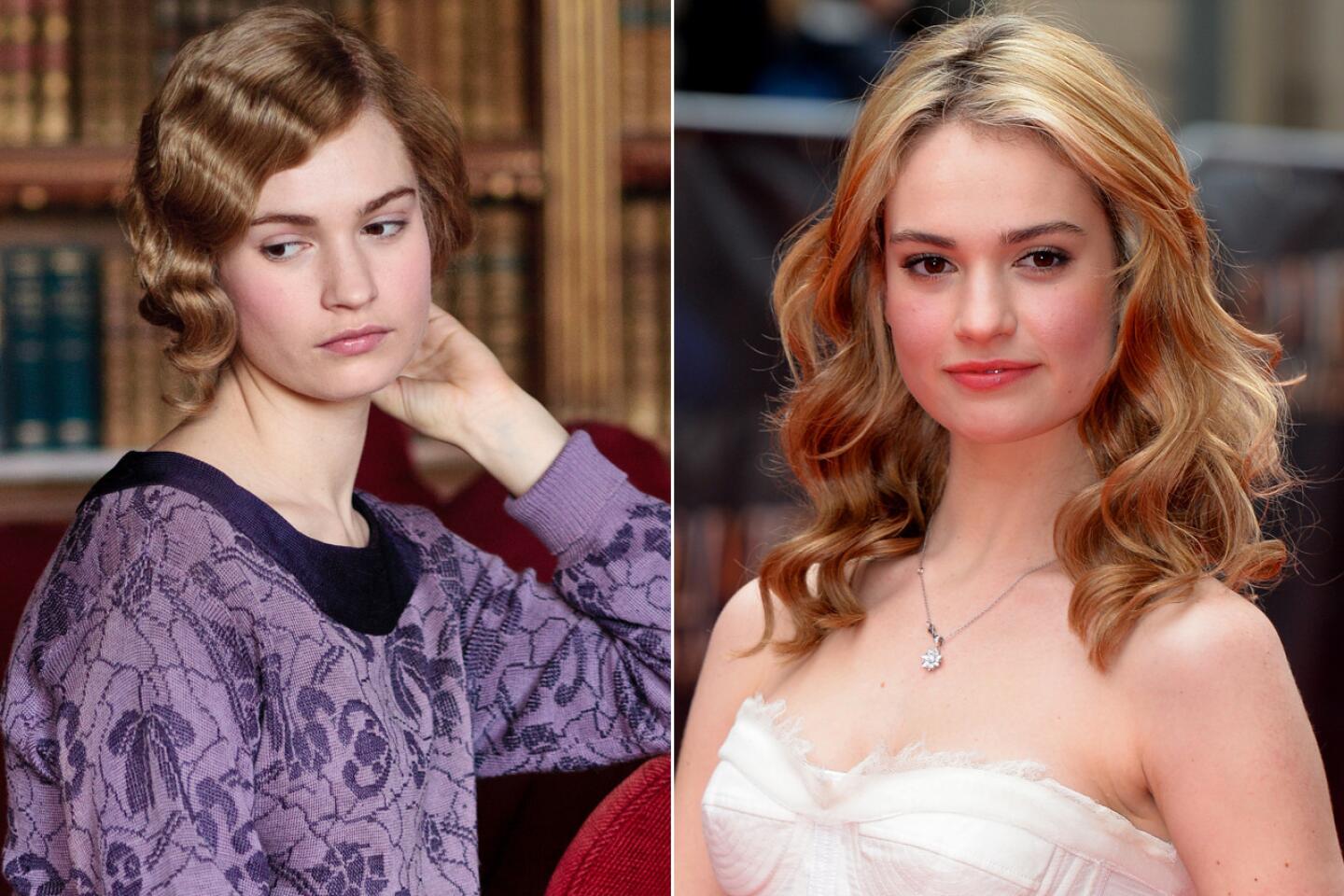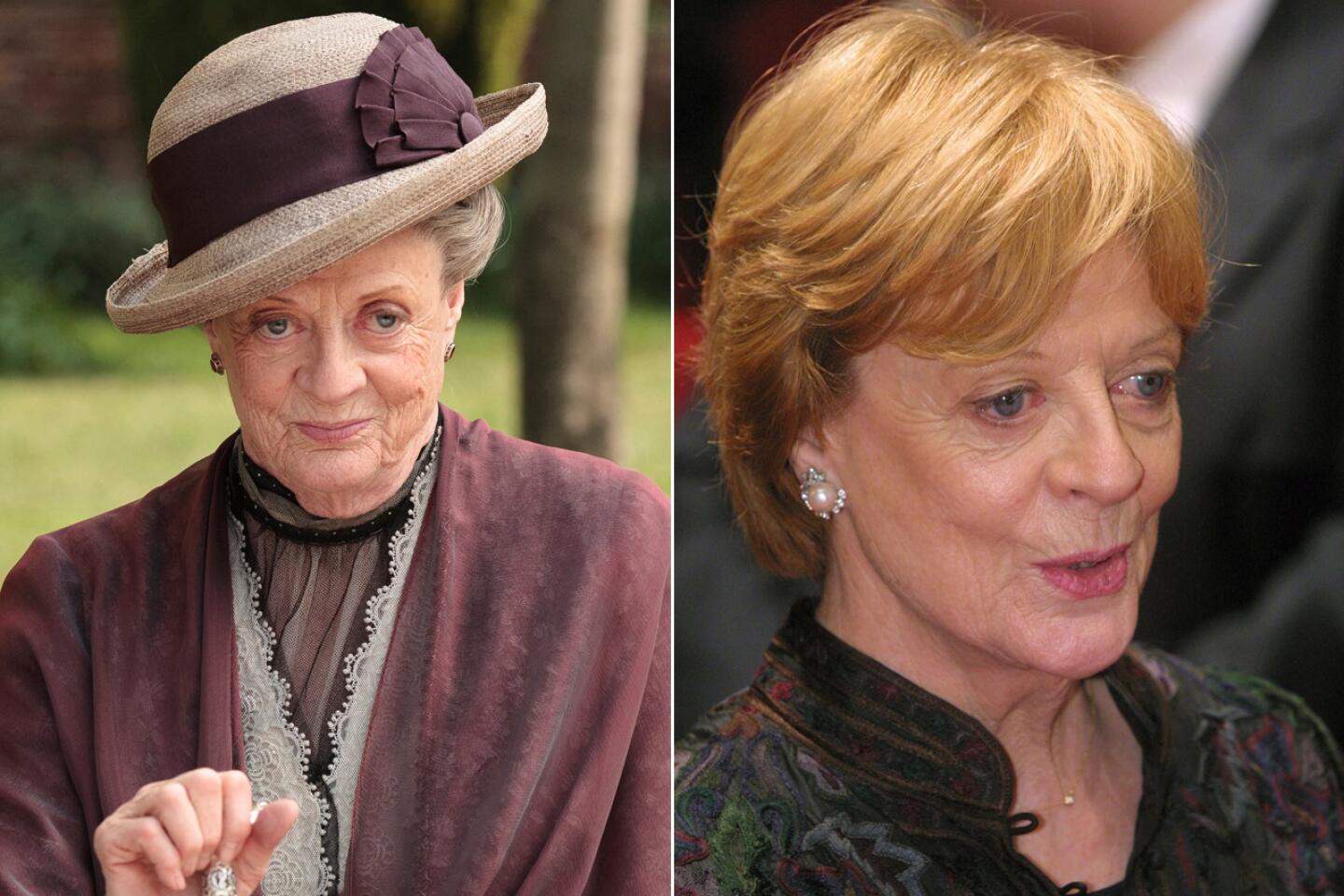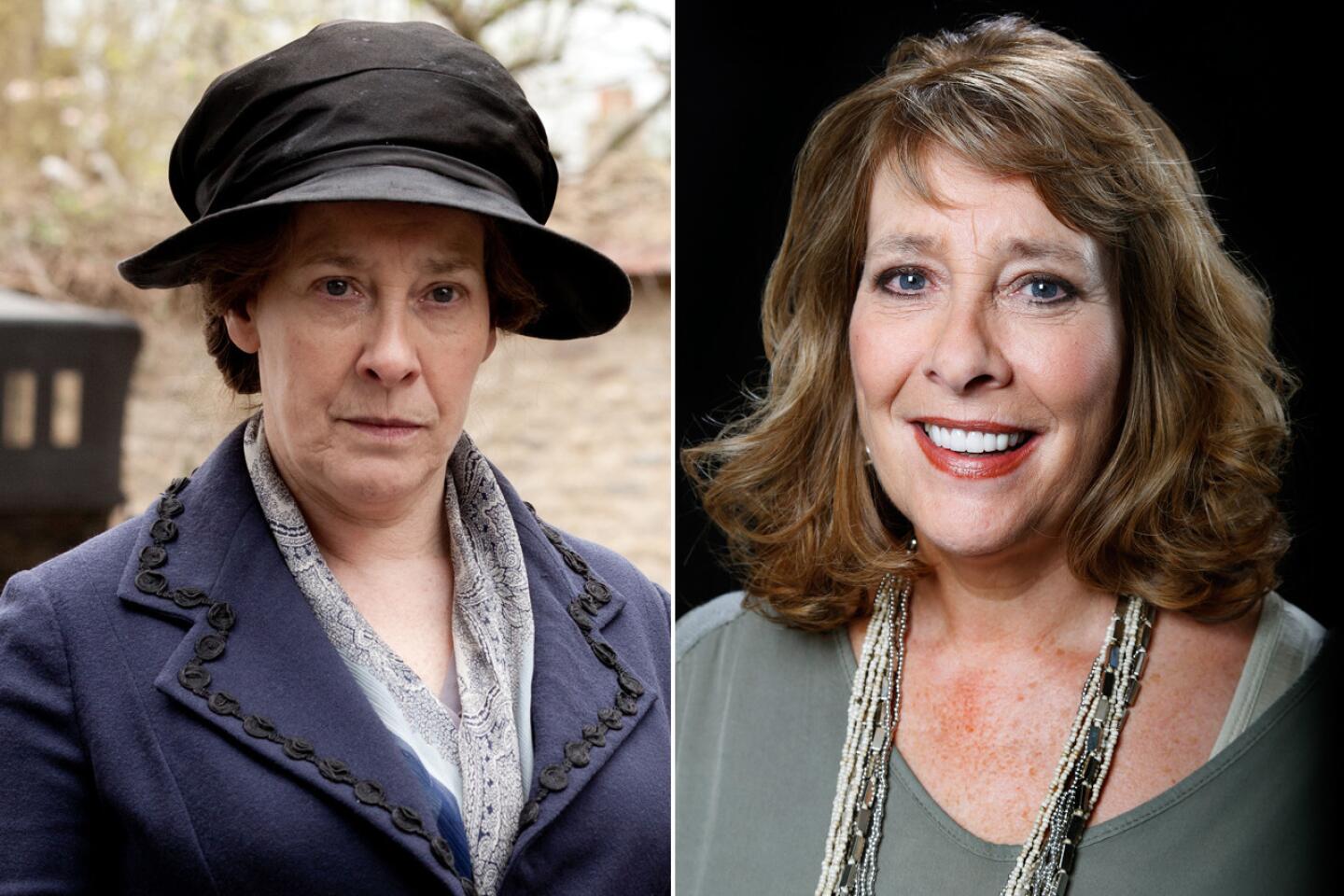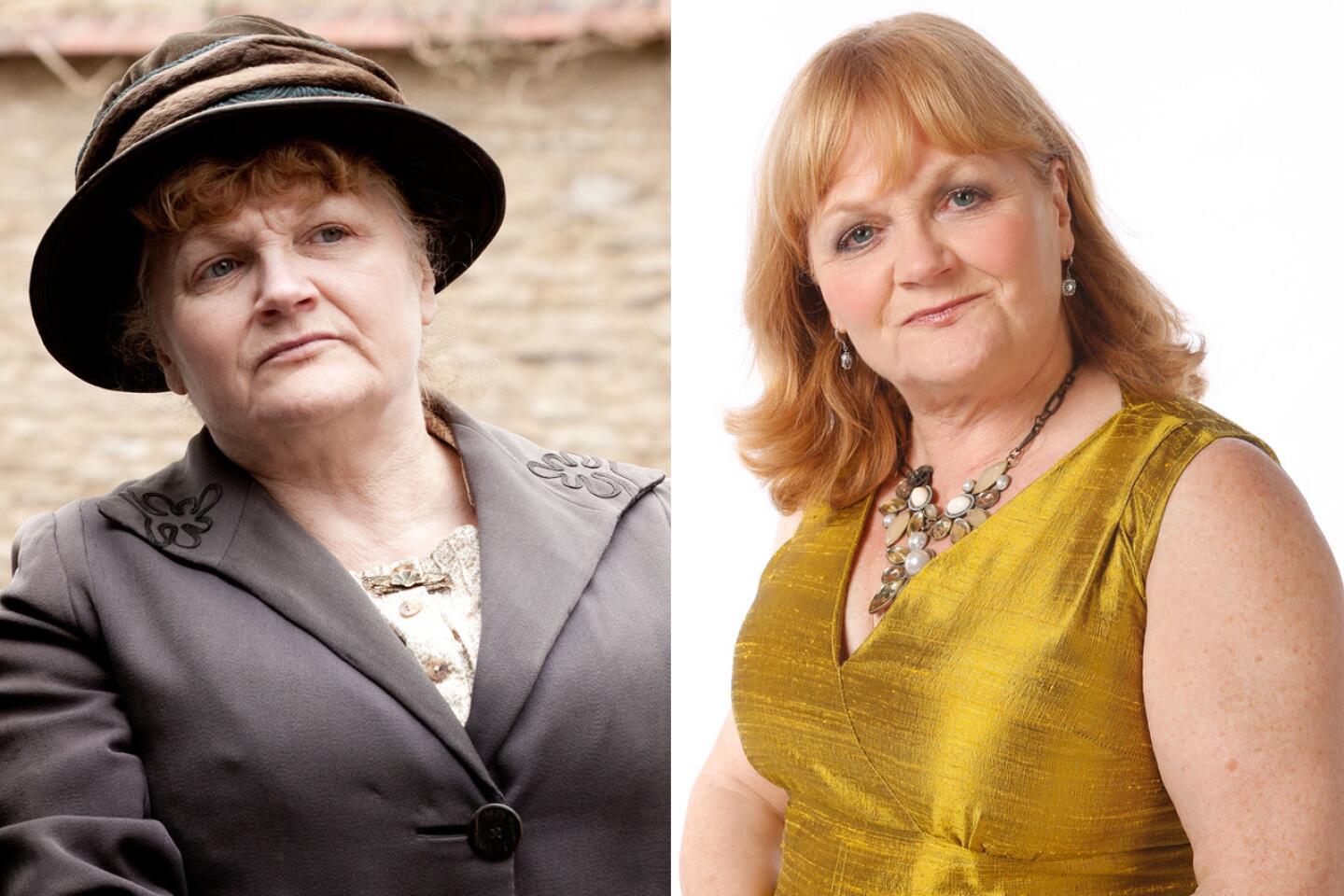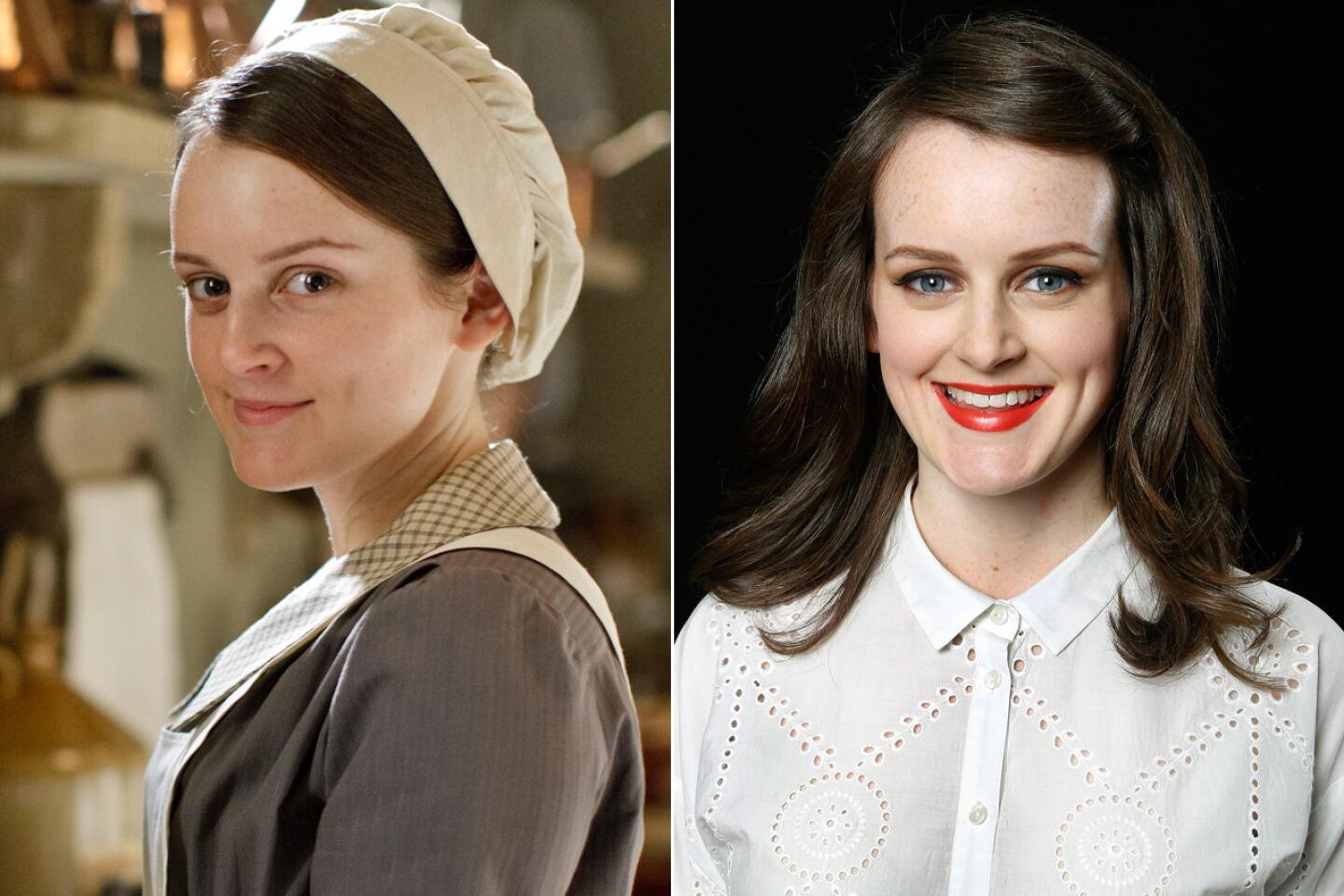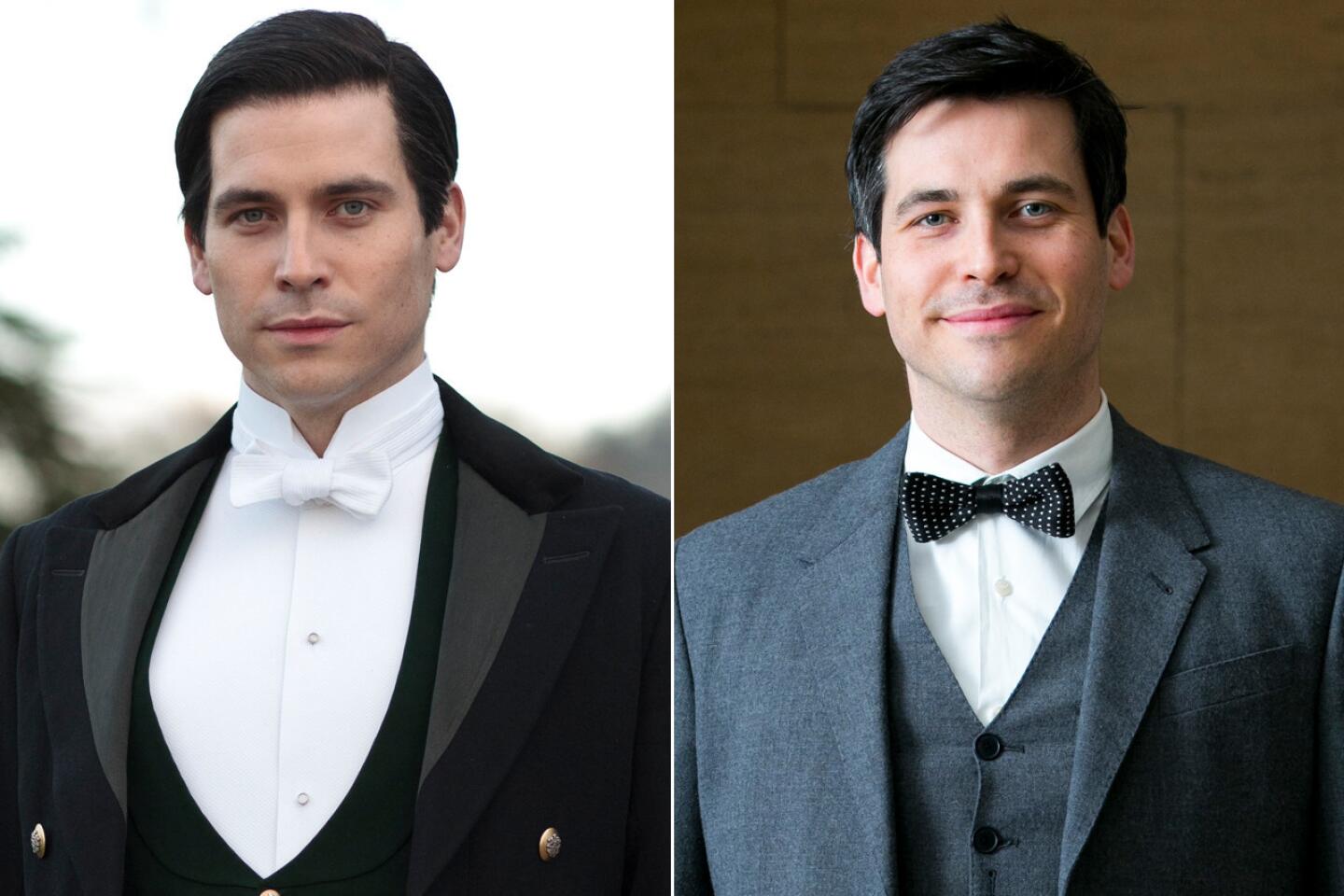Criticâs Notebook: Maggie Smith, the magnificent
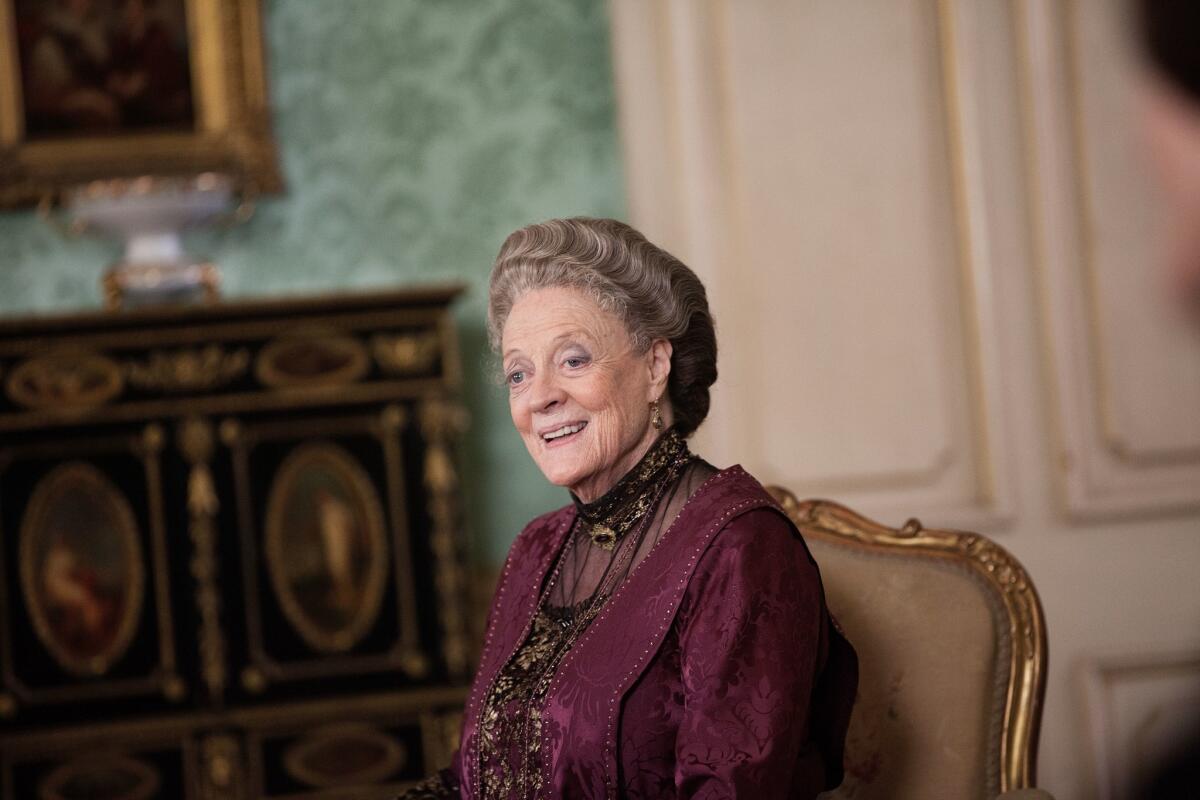
Violet Crawley, Dowager Countess of Grantham, played by Maggie Smith during filming of Season 3 of the hit ITV period drama âDownton Abbey.â
There are now many reasons to watch surprise mega-hit âDownton Abbey,â which begins its third season on PBS in January. But before the first episode aired, there was really only one: Maggie Smith.
Some critics and public broadcasting aficionados may have claimed allegiance to creator Julian Fellowes, the actor turned writer who had worked with Robert Altman to give us âGosford Park,â or even a nostalgic delight at the return of Elizabeth McGovern. But if we are truly honest with ourselves, the main reason for all the early anticipation and adulation was Smith, a performer of such consistent, elastic and unique fabulousness that, well into her eighth decade, sheâs practically become her own genre.
Querulous class-sensitive companion? Autocratic aunt? Snobby but possibly sensible duchess/countess/queen? Over the years, Smith has played the dithering and the withering, the brilliant and the mundane. She has Oscars for her unconventional schoolteacher (âThe Prime of Miss Jean Brodieâ), wry and brittle movie star (âCalifornia Suite) and more Emmy and British academy awards than is possibly seemly.
PHOTOS: Behind-the-scenes of âDownton Abbeyâ
In recent years, she has specialized in sharp-tongued, perpetually appraising women whose implacable gaze and scathingly insightful retorts shield, one suspects, a heart broken young. Even before she began playing the redoubtable Professor McGonagall in the Harry Potter series, she could freeze a room with a look, orate in a perfectly timed silence, break your heart by simply squaring her shoulders or settling her shawl.
Itâs been a big year for Smith, even by her perpetually prolific and wide-ranging standards. In âThe Best Exotic Marigold Hotel,â she played a chronically dissatisfied former domestic worker without, initially, a kind word for anyone; in the newly released âQuartet,â she is an opera diva who brings her outsized sense of self to rest among a group of friends at a retirement community. Sheâs already received six nominations this awards season â four from the Screen Actors Guild and two Golden Globe nods.
In âDownton Abbey,â she is the dowager countess of Grantham, a woman who says whatever she thinks to whomever she pleases. In Season 1 especially, she was the most formidable, and entertaining, symbol of a class system collapsing under the weight of its own absurdity.
âWhat is a âweek-endâ?â she asked the middle-class lawyer set, through the vagaries of British law, to inherit Downton. She gave the final word the careful and slightly disparaging intonation usually reserved for questionable nouns in a foreign language.
It was a glorious moment; the tone for the entire series set in a single word. Many rhapsodize the sibilance and hard consonants of fellow âPotterâ castmate Alan Rickman, but no one enunciates like Maggie Smith; if anyone can pronounce the word âglacialâ with more narcissism-baring deliciousness than she did in âGosford Park,â Iâll eat my tiara.
In her hands, sentences are as much sound effect, or in some cases, scores, as they are dialogue; she clatters and clips, slurs and simpers, dipping into this octave and that with the agility of an opera star. âOh, Peter,â she sighs, as the grown-old Wendy in âHook,â and suddenly that film is a lament for both age and youth.
PHOTOS: Maggie Smith through the years
Like Angela Lansbury, whom the multitudes will also watch in anything, Smith is one of those women who has looked essentially the same since she was 20, whom age has burnished rather than diminished. In a face softened and unapologetically lined, those prominent blue eyes, that expressive slice of a mouth are even more arresting.
When she chooses, Maggie Smith remains one of an ever-diminishing number of women to whom the term âcommandingâ can accurately be applied. Americans have always been soft, but the modern relaxation of social strait-lacing has made its way to Britain, where âIron Ladyâ Margaret Thatcher was replaced by Peopleâs Princess Diana and now beloved commoner Kate Middleton.
As middle age expands to encompass pretty much any number between 40 and death, the ramrod stiffness of spine and expectation that once marked the elderly matriarch or dowager are quickly becoming antique, the rigors of posture no longer necessary in a world supported by Spanx. Smith, and a few of her peers, still have enough muscle memory to evoke these female pillars of Freudian nightmare and great literature, women of principle and control, who may actually understand the tyranny and contradiction of their particular social order but who believe that the chaotic alternative will be, in the end, much worse.
More to Read
The complete guide to home viewing
Get Screen Gab for everything about the TV shows and streaming movies everyoneâs talking about.
You may occasionally receive promotional content from the Los Angeles Times.


